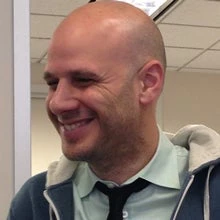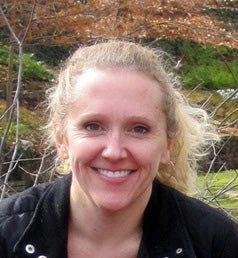Markus Goldstein announced that his most recent post would be his last for Development Impact, as he will be taking a break from the World Bank. He is one of the founding contributors to the Development Impact blog, with his first post on April 5, 2011 detailing lessons learned from his first (and very unsuccessful) attempt at an encouragement design. He has consistently blogged since then, writing over 230 blogposts over the past eleven years. Many of his posts have helped keep us up to date with the latest research on gender, on measurement, and on African development more broadly – all of which contributed to his institution-building role, founding and leading the Africa Gender Innovation Lab at the World Bank. Among the many things that made his posts special were the following lessons:
· Short and mysterious titles to blog posts make us want to click: Markus loves a short title, which fittingly his last blog post “money v time” encapsulates. Seeing a post simply titled “love and secrets”, “Goooooooalllllls!”, “Taking power”, and the blog record-holder for shortest title “Huh?” have intrigued us and caused us to read on. Following this lesson, we’ve just titled this post “Nante yie Markus”, which means Goodbye Markus, or literally “Walk well Markus” in Twi.
· Drawing the reader in with a personal anecdote can be a nice way into describing a research finding. A lot of Markus’ posts provide great syntheses of new research papers. Before jumping into the paper, one of the techniques he has used to make you care about its broader importance has been to illustrate through personal stories. Examples of opening sentences that draw you in like this are “My daughter thinks math is hard”, “I was at a conference a couple of years ago and a senior colleague, one who I deeply respect, summarized the conversation as: “our labor data are crap.””, and “Bouncing along a dusty road in Ghana, I had an eye-opening conversation with a colleague who was supervising a survey we were doing. It turns out he had been offered a more prestigious job, with a significantly higher salary, elsewhere in Ghana. But he was turning it down.”
· Fittingly given the above, he has engaged seriously with how to best use qualitative research to improve impact evaluations. This includes a two part (part 1, part 2) conversation with Rachael Pierotti on how to mix the two approaches.
· Fieldwork involves a lot of careful attention to detail and the occasional existential crisis. Markus has posted frequently about some of the behind-the-scenes processes involved in doing fieldwork. For example, how to enter into a community to do research and figure out whether you are dealing with Sacagawea or Tony Soprano; issues that arise when the program implementor’s goals conflict with those of research evaluation; the challenges of collecting gender-disaggregated data in practice; and the existential questions that survey design entails such as “when is a chair a chair?”.
· The programs that have the most impact may be out of the traditional domain of the ministry in charge – In talking about hammers when you need a wrench: “Heck, Viagra started life as a heart medicine. The same is true in development policy, we just need to keep our eyes out for those out of silo results, not be afraid to explore them, and then figure out a policy structure that lets us use them.”. In that light, we are looking forward to his biggest contribution to the development impact blog community to somehow come from him not blogging…
Thanks Markus, for all of your contributions over the years! In one of his earliest posts, Markus described the impact evaluation roller coaster of ups and downs, and made a non-causal inference about baldness being linked to research stress. So buckle up, enjoy the thrills (and hopefully not too many spills) of the new ride, and remember your season pass will always remain valid here.





Join the Conversation